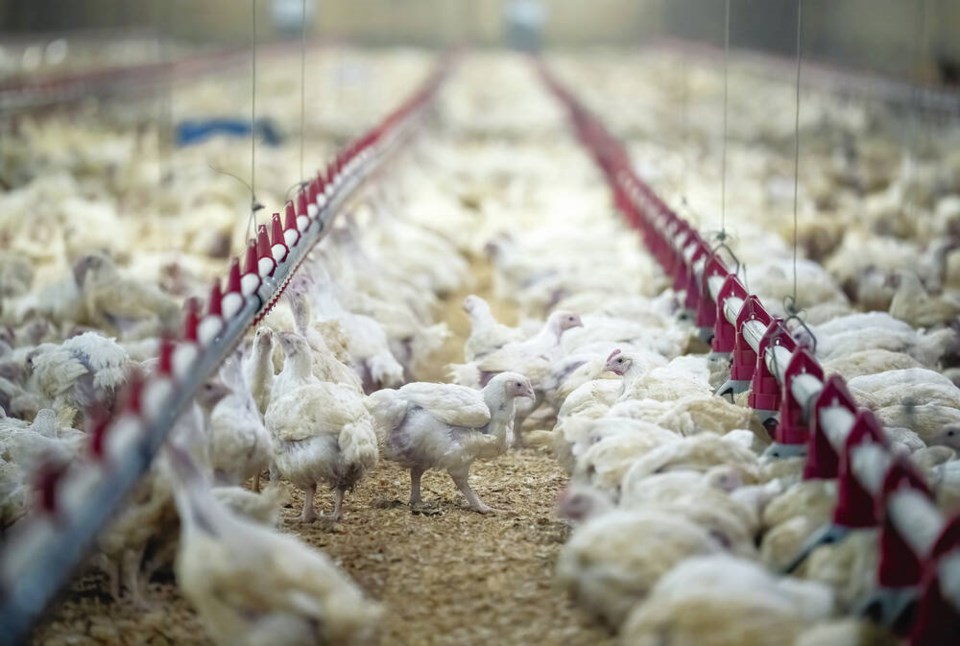A farm in the Cowichan Valley has been identified as a “premises of concern” for avian flu by the the Canadian Food Inspection Agency.
The province’s Ministry of Agriculture and Food confirmed that the federal agency is investigating a “backyard flock” of chickens in the Mill Bay area that might have the highly infectious H5N1 virus.
The ministry has sent out notices to farms within a 12-kilometre radius. “The premises of concern has displayed symptoms … and has warranted further investigation,” the ministry said Friday in an email.
The Salt Spring Island Poultry Club has rescheduled its April 30 poultry show to late May or June after a member in the Cowichan Valley alerted the group. The club said in a Facebook post: “Our goal as a club is to do everything we can to protect our Island’s livestock, and our club members’ pets.”
The CFIA said cases of avian flu are rising rapidly across Canada.
In B.C., only one outbreak has been confirmed, on a farm near Enderby in the Shuswap.
The virus is spread through contact with an infected bird, its feces or nasal secretions. It can be spread by migratory birds and by humans, who can carry the infection on their shoes or clothing.
Island commercial poultry farms have been on alert since the Enderby outbreak was reported April 13, with bio-security measures that include restricted access in barns and spraying down all vehicles coming and going.
The CFIA does not release information about suspected avian flu cases. If H5N1 is confirmed in the Mill Bay flock, it will be posted on its website.
The Agriculture Ministry said birds can end up dead, or have symptoms such as a decline in egg production, respiratory illness, diarrhea or a drop in feed or water consumption.
The province’s worst avian flu outbreak was in 2004, which led to a cull of about 17 million birds in the Fraser Valley.



